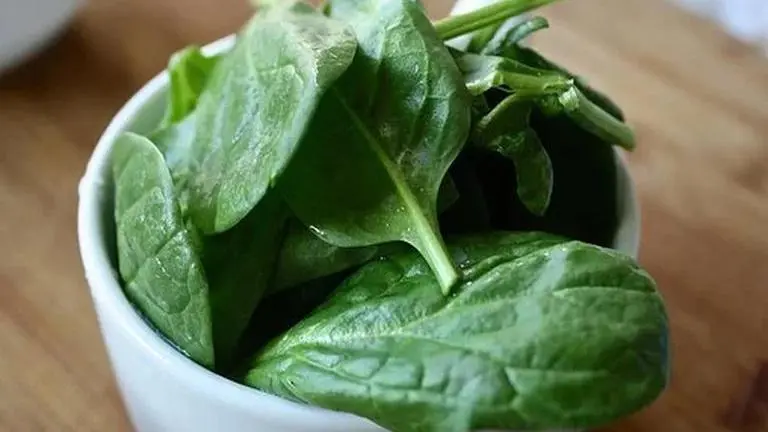Updated 6 October 2020 at 18:03 IST
Spinach an excellent alternative to platinum in fuel cells, finds new study
A recent study has shown that spinach can be converted into carbon nanosheets and then become a catalyst for oxygen-reduction reaction in fuel cells.
- Lifestyle News
- 2 min read

A recent study has shown that in addition to being really healthy, spinach can also be converted into carbon nanosheets and then become a catalyst for oxygen-reduction reaction in fuel cells. The study was conducted by four researchers from the Department of Chemistry, Washington University and was published in ACS Omega. The study is titled 'Spinach-Derived Porous Carbon Nanosheets as High-Performance Catalysts for Oxygen Reduction Reaction'.
A cheap but equally efficient replacement for platinum
An Oxygen Reduction reaction is the watershed term used for the process of energy conversion. The process encompasses everything from animal respiration to fuel cells and all processes where chemical energy is converted into electrical energy through the use of an oxidising agent. Therefore an Oxidation-reduction reaction is when the transfer of electrons within a chemical reaction generates electricity. Platinum is usually the material which is used as a catalyst but it is extremely expensive and not readily available. While other cheaper carbon-based materials can be used as an adequate substitute, they do not perform nearly as well as platinum.
Thus, the aim of the researchers behind the study was to develop a cheaper but equally efficient replacement for platinum and found that the spinach leaf was their perfect candidate. The research found that natural resources could become sustainable catalysts for an oxygen reduction reaction. Another added benefit of using spinach as a catalyst for Oxygen Reduction Reactions is that spinach is renewable biomass and therefore more readily available than platinum.
Advertisement
The study stated that “Biomass-derived porous carbon materials are effective electrocatalysts for oxygen reduction reaction (ORR), with promising applications in low-temperature fuel cells and metal-air batteries. Herein, we developed a synthesis procedure that used spinach as a source of carbon, iron, and nitrogen for preparing porous carbon nanosheets and studied their ORR catalytic performance”.
The study also stated that since spinach is full of iron and nitrogen this makes it an ideal candidate as an Oxygen Reduction Reaction catalyst. In addition, the team behind the study believe that spinach once converted into nanosheets will be longer-lasting and sturdier than platinum catalysts because they do not weaken over time.
Advertisement
(Image: Pixabay)
Published By : Shubham Bose
Published On: 6 October 2020 at 18:04 IST
